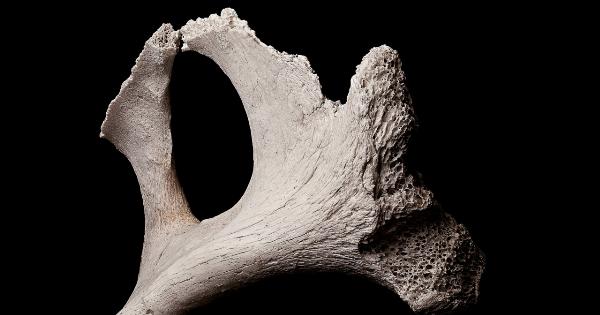Probiotics, often referred to as “good bacteria,” have gained significant attention in recent years for their potential health benefits.
While they are most commonly known for their positive effects on digestive health, emerging research suggests that probiotics may also play a role in reducing bone loss.
The Link Between Probiotics and Bone Health
Several studies have indicated a potential relationship between probiotics and bone health. One of the key mechanisms through which probiotics may exert these effects is by enhancing the absorption of calcium, an essential mineral for bone health.
A study published in the Journal of Clinical Gastroenterology found that individuals who consumed a probiotic yogurt for six months experienced a significant increase in calcium absorption compared to those who consumed a conventional yogurt.
This increased calcium absorption can contribute to improved bone density and reduced risk of osteoporosis.
Probiotics and Inflammation
Inflammation is a key driver of many chronic diseases, including osteoporosis. Research suggests that probiotics may help reduce inflammation in the body, thereby mitigating the risk of bone loss.
A study published in the Journal of Cellular Physiology demonstrated that certain strains of probiotics can inhibit the production of pro-inflammatory cytokines, which are molecules involved in the inflammatory response.
By modulating inflammation, probiotics may help protect against bone loss and maintain bone health.
Probiotics and Vitamin D
Vitamin D plays a crucial role in calcium absorption and bone health. Probiotics have been shown to enhance the production and availability of vitamin D in the body.
A study published in the Journal of Nutritional Science and Vitaminology found that mice supplemented with a specific strain of probiotic showed increased levels of active vitamin D in their blood.
This suggests that probiotics could potentially enhance the body’s utilization of vitamin D, leading to improved bone health.
Probiotics and Gut Health
The gut microbiome, which consists of trillions of bacteria residing in the digestive tract, plays a critical role in overall health, including bone health.
Probiotics contribute to a healthy gut microbiome by replenishing beneficial bacteria and maintaining a balanced microbial environment.
A study published in the Journal of Bone and Mineral Research discovered that individuals with a healthy gut microbiome had higher bone mineral density compared to those with an unfavorable gut microbial composition.
Probiotics can promote a healthy gut microbiome, potentially leading to better bone health.
Probiotic Strains for Bone Health
While numerous probiotic strains exist, some have shown specific effects on bone health. These strains include:.
1. Lactobacillus rhamnosus: This strain has been linked to increased calcium absorption and improved bone mineral density.
2. Bifidobacterium longum: Research suggests that this strain can reduce inflammation and enhance calcium absorption.
3. Lactobacillus reuteri: Studies have shown that this strain may increase bone mineral density and reduce the risk of osteoporotic fractures.
Supplementing with Probiotics
If you are considering incorporating probiotics into your routine to support bone health, it’s important to choose a high-quality supplement that contains the specific strains known for their beneficial effects.
Consult with a healthcare professional to determine the appropriate dosage and duration of probiotic supplementation.
It’s also essential to maintain a healthy lifestyle, including a balanced diet rich in calcium and vitamin D, regular exercise, and avoiding smoking and excessive alcohol consumption.
Conclusion
Emerging research suggests that probiotics may play a beneficial role in reducing bone loss.
These “good bacteria” have shown the potential to enhance calcium absorption, reduce inflammation, improve vitamin D availability, and promote a healthy gut microbiome – all of which contribute to maintaining optimal bone health.
While further studies are needed to fully understand the extent of probiotics’ impact on bone health, incorporating specific probiotic strains into a healthy lifestyle may prove to be a valuable strategy for reducing the risk of osteoporosis and maintaining strong bones throughout life.































